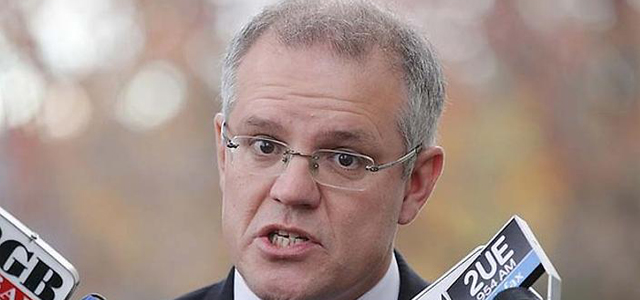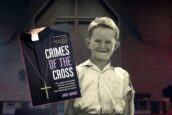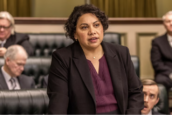
Church and State: Scott Morrison’s faith and public policy

Widely reported as Australia’s first Pentecostal Prime Minister, Scott Morrison’s faith has been the subject of wide speculation and analysis in Australian political circles.
On 14 February 2008, Scott Morrison delivered his Maiden speech to parliament. As is the case with these speeches, this outlined a number of principles that he said informed who he was and the values he brought to public life. Mr Morrison invoked Scripture multiple times. He cited Archbishop Desmond Tutu and William Wilberforce as examples of figures who had an impact on politics out of a deep personal faith.
Growing up in a Christian home, I made a commitment to my faith at an early age and have been greatly assisted by the pastoral work of many dedicated church leaders, in particular the Reverend Ray Green and pastors Brian Houston and Leigh Coleman. My personal faith in Jesus Christ is not a political agenda. As Lincoln said, our task is not to claim whether God is on our side but to pray earnestly that we are on His. For me, faith is personal, but the implications are social—as personal and social responsibility are at the heart of the Christian message.
Mr Morrison indicated that more needed to be done to help Africa, to make poverty history and to raise the level of foreign aid, commending the Rudd Labor Government for doing so. He said, however, that far more needed to be done to bridge the gap between aid funding levels and what was needed.
As the Sydney Morning Herald reported, Mr Morrison worships at Horizon, a Pentecostal Church located in the Southerland Shire. While his duties as Treasurer and now Prime Minister, largely kept him away from attending most weeks, his wife is actively involved in the church’s children’s ministry and his family are regulars.
The Senior Pastor at Horizon, Brad Bonhomme, was effusive in his praise for Mr Morrison as a person and a member of his congregation. While making it clear that the church plays no part whatsoever in Liberal Party policy formulation, Mr Bonhomme said that the church was thrilled to see one of their members in the role.
“We are thrilled, we are just so excited and thankful and humbled all at the same time. There is a measure of responsibility too and we want to do our best. From our perspective we do all we can to represent our prime minister well,” he said.
This aspect of Morrison’s faith is well known, with more than one article on his ascendancy to the Prime Ministership describing him as Australia’s first Pentecostal Prime Minister. What is less known about Scott Morrison is that his faith journey began with the Uniting Church. In his maiden speech to parliament, he thanked, among others, the Uniting Church minister Rev. Ray Green, as one of the early Christian influences on his life.
Rev. Dr John Squires is the Principal of Perth Theological Hall, a role he undertook after decades of ministry in NSW/ACT Synod. In a recent post on his blog, he recalled his ministry to the same congregation that a young Scott Morrison attended with his parents.
I must note that, to my knowledge, I did not ever meet the young adult Scott Morrison, during those years of ministry. But I do recall his parents: both striking personalities, both devoted and committed Church people. Marion ran the local Girls Brigade unit, whilst John ran the Boys Brigade. Just before I commenced there (in early 1988), he had completed a term as Chairperson of the Church Council; he remained as a member of the council during my time there. They are both active in worship, witness, and service.
The congregation, he recalls, was theologically diverse and in many ways, committed to enacting social justice as part of their faith.
I remember a congregation that held together a good spread of diversity within its membership. There were people who had spent decades of their lives as faithful Methodist or Presbyterians, now active as Uniting Church Members. There were people strongly shaped by charismatic experience, and others firmly committed to social justice. There were fellowship groups who raised funds for overseas missions and other groups who staffed and supported local charitable enterprises.
Having closely watched Mr Morrison in his public roles, Rev. Dr Squires says that he is now prompted to question exactly how much of the theology of this congregation the young Scott Morrison imbibed. He is not alone in asking about how, exactly, the new Prime Minister reconciles his role with his faith.
In a 2011 interview with Julia Baird for ABC Radio, Mr Morrison indicated that he maintains some separation between his faith and how he thinks about policy. In his maiden speech, he said; “My personal faith in Jesus Christ is not a political agenda.”
The Bible, he suggests, is not a “policy handbook.” Here, he maintains a similar line to that of his colleague and former party leader Tony Abbott, who told an election forum in 2010 that, “faith has influenced my life but it has not influenced my [politics].”
At other times, however, Mr Morrison has brought his faith into public debates on the subject of same sex marriage and a wider perspective on how he says Christians are mocked and disrespected in the public sphere.
In his maiden speech, he argued that Christians had a right to profess their faith as part of public debates.
“In recent times it has become fashionable to negatively stereotype those who profess their Christian faith in public life as ‘extreme’ and to suggest that such faith has no place in the political debate of this country,” Mr Morrison said.
“This presents a significant challenge for those of us… who seek to follow the example of William Wilberforce or Desmond Tutu, to name just two.”
In 2016, speaking in the context of a broader debate over whether Australia should introduce same-sex marriage, Mr Morrison continued this line of argument, suggesting that conservative Christians who disagreed with changes to the marriage act were the victims of hate speech and bigotry.
“Frankly people who have very strong religious views, they have also been subject to … quite dreadful hate speech and bigotry as well,” Mr Morrison told ABC radio.
In a profile piece written for The Monthly, Sunil Badami notes that Mr Morrison once told a journalist, “how I reconcile [my role] with my faith is, frankly, a matter for me.”
Perhaps the most criticised aspect of how Mr Morrison reconciles his role with his faith is his tenure as shadow minister, and eventually minister for immigration. In this role, he had responsibility for the Coalition’s hard-line policies against asylum seekers who arrive in Australia by boat.
When the Abbott Liberal Government was elected in 2013, Mr Morrison continued the previous Rudd Labor Government’s policy of refusing to settle in Australia any asylum seekers who arrived by boat. Under Mr Morrison’s leadership, Australia also began a program of turning asylum seeker boats around at sea. Mr Morrison also introduced key secrecy measures, indicating that he would not comment on “on-water” events.
When he assumed the role, Mr Morrison recorded a message for asylum seekers in Australia’s off-shore processing centres on Nauru and Manus Island. In blunt terms, the new immigration minister told them that they would not be settling in Australia and would do better to return to their countries of origin.
“If you have a valid claim, you will not be settled in Australia. You will never live in Australia,” Mr Morrison said in the video, which was obtained later by Fairfax Media.
“You should know that the government’s will will not be changed on this issue. You will remain here until you go home or you are settled in somewhere other than Australia.”
That night, it is alleged that nearly one hundred asylum seekers attempted suicide.
Since becoming Prime Minister, Scott Morrison has faced criticism over this record as immigration minister, as it relates to his faith as a Christian.
On the subject of asylum seekers, Love Makes A Way lashed Mr Morrison for his previous asylum seekers policies and statements the day that he became Prime Minister. In a post on the group’s Facebook page, they argued that he was “more fit for the Hague than for the Lodge.”
“As Immigration Minister he actively and systematically committed violence against men, women and children who came seeking our protection from persecution,” the post read.
“As Treasurer his economic policies have been entirely for the benefit of the already super-rich, and against the poor.”
In a more satirical fashion, cancelled ABC comedy series Tonightly took Morrison to task with a song that criticised how he reconciles his faith with justifying Australia’s off-shore detention centres. While the Daily Telegraph condemned the skit as being done in bad faith, an ABC statement said that the sketch was not intended to poke fun at Christianity.
“Most viewers would understand the skit to be a satirical way of examining the relationship between such beliefs and government policies on asylum seekers,” the statement said.
“Mr Morrison has publicly discussed his religious beliefs on numerous occasions, and many media outlets have explored how his faith sits alongside his public policies and statements.”
For his part, the Prime Minister said that he was not offended by the sketch.
Some public Christian leaders have expressed their hopes that the new Prime Minister might bring about meaningful change in line with the promise of his maiden speech to parliament. Micah Australia CEO Rev. Tim Costello issued a statement in this vein.
“My prayer for his Prime Ministership is that he will do justice, love mercy and walk humbly with the Lord,” Rev. Costello said.
Scott Morrison now has the top role in Australian politics, a role that he will be able to shape and make his own. How his faith informs his approach to this role—and whether Australia will see policy shift in areas like foreign aid and asylum seeker policies—remains to be seen.
Jonathan Foye is Insights’ Editor





























































1 thought on “Church and State: Scott Morrison’s faith and public policy”
Scott Morrison’s religious fervour is clouding his judgement. He appears to me to have some odd views of homosexual and transgender issues. I think he hasn’t had enough broad life experience and his sheltered life is evident.
He met his wife at church at twelve. Married young. Lives a surburban life with his wife and daughters. Goes to church on Sunday. Doesn’t understand any other way if life.